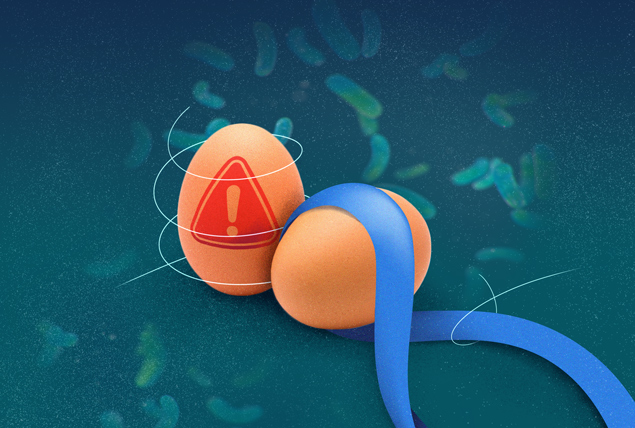Are You Likely to Get Prostatitis? These 3 Factors Might Mean 'Yes'

Prostatitis—ever heard of it? It's not a commonly discussed health topic, but don't think that means it'll never happen to you, because an estimated 25 percent of guys experience symptoms at some point in their lives.
What is prostatitis? The suffix "itis" means inflammation, and prostatitis is an inflammation of the prostate, the walnut-sized gland found just below a man's bladder that is responsible for producing semen, the fluid that nourishes and carries sperm on their quest to find and fertilize an egg. Bacterial prostatitis often occurs when strains of bacteria from urine infect the prostate. Nonbacterial prostatitis can result from nerve damage in the urinary tract or other unknown causes.
Symptoms of prostatitis include burning with urination; difficulty urinating (retention); frequent urination; bloody or cloudy urine; pelvic, groin, abdominal or back pain; painful ejaculation; and flu-like symptoms. Untreated, the condition can lead to a more serious infection or other health problems, including systemic bacterial infections, epididymitis, prostatic abscess, semen abnormalities, chronic pelvic pain, infertility—all stuff that's no good.
Three medical issues or procedures in particular place guys at higher risk for prostatitis.
Recent use of a urinary catheter
A urinary catheter, a flexible tube that drains urine from the bladder to a drainage bag outside the body, is employed when a patient is unable to empty their bladder on their own. This may be caused by an inability to control urination, urinary retention or urinary incontinence. The devices are important when an individual undergoes genital or pelvic surgery, experiences an injury to bladder nerves or the spinal cord, has blocked urine due to prostate problems or kidney stones, or experiences impaired mental function from conditions such as dementia.
Urinary catheters are typically removed once urinary control is regained, but they may need to be used indefinitely for long-term conditions. Different types include short-term/intermittent, external and internal catheters.
So, what's the link to prostatitis? Urinary catheters provide the perfect mode of transport from the outside world into your bladder, placing you at high risk for a urinary tract infection (UTI). Catheters are the leading cause of UTIs contracted in healthcare environments, and UTIs affect an estimated 3 percent of men worldwide each year. Easy access to the body also provides bacteria the opportunity to cause other problems, such as bacterial prostatitis.
Surgery or prostate biopsy
Acute prostatitis occurs after 2 percent of prostate biopsies, according to a 2010 study from the Korean Journal of Urology. Prostate and other urogenital and pelvic surgeries similarly increase the risk of prostatitis. As with UTIs, this condition is most often caused by the introduction of bacteria into the prostate or pelvic area, allowing bacteria to travel through the blood to the prostate and resulting in bacterial prostatitis. Surgeries that cause nerve damage or trauma to the area can also lead to a chronic case of the condition, unrelated to infection; this type is much more challenging to treat and can lead to chronic pelvic pain.
Recent bladder infection
If you've had a bladder infection recently, antibiotics may have cleared up the symptoms, but bacteria can still be present in the pelvic region. The prostate's proximity to the bladder and urethra—just centimeters below the bladder and surrounding the urethra—renders it extremely vulnerable to bacteria in this region. This is one of the many reasons it's so critical to take antibiotics as prescribed for the entire length of time directed by your doctor; if the drugs are terminated after symptoms clear, bacteria may be left behind, leading to a more serious infection and an increased risk of developing a resistant strain of bacteria that is no longer responsive to the antibiotic. If you get a bladder infection, drink plenty of fluids, which help flush out bacteria, take all medications as prescribed and stay vigilant.
Many symptoms of prostatitis are the result of other problems or actually nothing at all. But you should still take any unusual symptoms seriously and get evaluated by a doctor if you're suspicious.













